After a few days of telling the story of the Alltech Symposium, which I have not finished doing btw, I thought it would be a good time to offer you Cindy’s Top Ten Reasons to have ZimmComm cover your next event:
We’ve pioneered online event coverage. Some call it live blogging an event. We like to think of it as “telling a story, your story.” Since we started our unique brand of on-location multimedia content creation we’ve taken the approach that we’re there to convey the sights and sounds as we see them to an online audience that’s interested to know what’s going on. We’re award winning journalists. We’re award winning public relations specialists. We know new media and social networking. It’s a great combination. Learn more about our online event coverage services and schedule us in.
So here we go:
10. We “Tweet” u right – in so many ways. We have multiple established Twitter accounts with thousands of followers on several different topics and can help tweet your event to tweeps all over.
9. Flickr Photos up in a Flash – get your photos uploaded and out for media to use and everyone to see faster.
8. Google Loves Us – Search engines pick up posts from ZimmComm blogs fast and furious, both news and web searches.
7. We Flip for YouTube – short, web quality video clips give your event a YouTube presence.
6. Audio on Demand –interviews with key presenters and speeches can be available on-line to listen or download.
5. First Class Photography – we take high-res photos of everything so you don’t have to.
4. Targeted Exposure – We can post on your blog and one or more of our own – with audiences that include agribusiness, renewable energy, dairy, and precision farming. We can even design and build a blog for your specific event.
3. Event Blogging Trail Blazers – ZimmComm was one of the first pioneers of event blogging, starting with the National Biodiesel Conference in February 2006.
2. Multi-tasking is our Middle Name – We often do audio, video, photos, tweets, blogging and more at the same time – while chewing gum and balancing a book on our heads. Ok, we made the last part up.
1. Historical Preservation – Your event is archived for history on the web and we provide a digital copy of all photos, video and audio sent to you for the sake of posterity after the event.


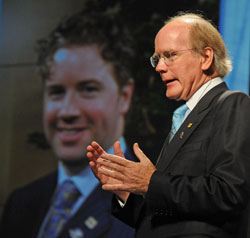
 The
The 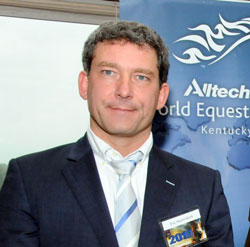 The
The 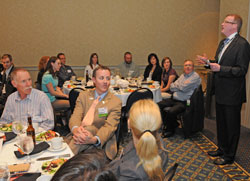 This evening participants in the Alltech International Animal Health and Nutrition Symposium broke up into discussion dinners with various topics. I attended the dairy dinner.
This evening participants in the Alltech International Animal Health and Nutrition Symposium broke up into discussion dinners with various topics. I attended the dairy dinner.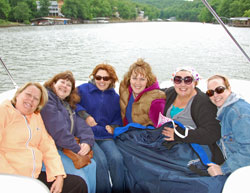 The 1st Annual NAFB Lake Girls Retreat was held this past weekend at the lovely home of the incomparable Sara Wyant and Al Johnson of
The 1st Annual NAFB Lake Girls Retreat was held this past weekend at the lovely home of the incomparable Sara Wyant and Al Johnson of 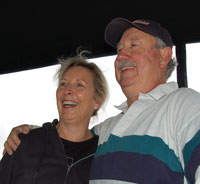 Sara and Al were very gracious hosts and showed us a great time at the Lake. We were able to take the boat out on Saturday and have lunch at Shorty Pants, a drink in Paradise and dinner at The Fish. It was all quite marvelous and only the weather could have been better.
Sara and Al were very gracious hosts and showed us a great time at the Lake. We were able to take the boat out on Saturday and have lunch at Shorty Pants, a drink in Paradise and dinner at The Fish. It was all quite marvelous and only the weather could have been better.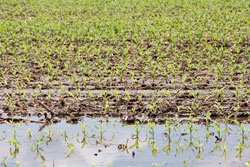 Cool, wet weather slowed down corn and soybean planting last week, but didn’t stop it.
Cool, wet weather slowed down corn and soybean planting last week, but didn’t stop it.